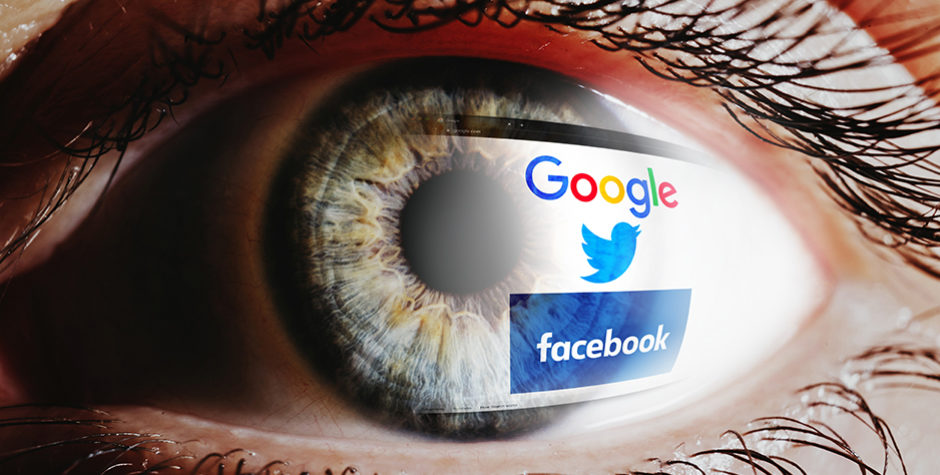Big Tech Censorship and Bias – What Do We Do About It?
On May 28th, 2020 President Donald Trump released his Executive Order (“EO”) titled, “Preventing Online Censorship.” In releasing the full text of the EO, mainstream media outlets like NBC news were quick to criticize the Presidential order, characterizing it as just a “response to Twitter,” which had recently publicly labeled as “misleading,” President Trump’s tweets about initiatives to use mail-in-ballots for the upcoming national election.
But in fact, President Trump has for years expressed concerns over the ability of giant technology platforms like Twitter, Facebook, and Google to suppress conservative viewpoints and to deliberately shape political information accessible to American voters. Back in 2018, he openly criticized Google for manipulating search results in order to yield negative news about conservative politicians. Even before the 2016 election, Silicon Valley tech leaders were already lining up against Donald Trump, bemoaning the consequences to “innovation” companies if he were elected.
In its public advocacy efforts, the ACLJ has also witnessed the Left-leaning bias against conservative viewpoints by some technology companies, often times choosing abortion propaganda as truth and pro-life viewpoints as fringe and false. It is an issue that is critically important to understand and address.
First, it is important to emphasize what this EO does not do. It does not create any “law” regarding information technology companies. That is the province of Congress.
What the EO does do, however, is to direct federal agencies that are under the Executive Branch to investigate the manner in which big tech companies have been capitalizing on an extraordinary gift granted to them by Congress in 1996. Imbedded in the text of the Communications Decency Act (CDA) back then, was section 230. That part of the CDA had granted Internet driven digital platforms like Facebook, Twitter, Google, Apple, and Amazon legal protection from having to face civil lawsuits in almost all situations dealing with their content decisions; i.e. decisions about what content would be publicly viewable, or what would be blocked off their web platforms.
This civil immunity was intended to promote Internet innovation, and to give those companies an incentive to screen out harmful content like obscenity while also giving them a free hand to leave on their sites information and opinions that might be controversial, without worrying about civil liability, as long as those decisions were done in “good faith.” Ideally, children and families would be protected, while free expression would flourish. That was the idea in 1996. However, President Trump’s EO reflects the view of not only the White House, but also members of Congress, advocacy groups, and many citizens, that section 230 has created more Internet content problems than solutions.
Two federal agencies have been assigned primary tasks by this EO. The Federal Communications Commission (FCC) will be required to determine whether it violates “good faith” for Internet tech platforms to make content decisions against citizen viewpoints or content in ways that are “deceptive” or “pretextual,” or that violate the company’s own published terms of service with users.
The Federal Trade Commission (FTC) is tasked by this EO to determine whether large platforms like Facebook and Twitter, which have become the equivalent of public forums, have abused their civil immunity by suppressing user content or viewpoints in ways that are inconsistent with their promises to their users. In other words, to investigate whether “Big Tech” companies have been deceptive by telling American citizens that their platforms are an open forum for a diversity of opinions – all the while suppressing ideas that they don’t like.
While this Executive Order has a restrained legal reach, it has provided something profoundly important: it has illuminated the growing problem of a handful of monolithic tech companies controlling, and in some cases placing a chokehold on, America’s information and viewpoints.
This is a new and rapidly developing area of the law. As the ACLJ is made aware of specific instances of Big Tech bias and abuse of conservative viewpoints, we will continue monitoring these types of cases and look for ways to address this issue. The Executive Order is a first step in diagnosing the problem. The ACLJ’s Legal and Government Affairs teams will continue working in this area to provide solutions to uphold free speech without squelching and discriminating against conservative and pro-life viewpoints.
As always, if you find that your First Amendment rights have been violated, please contact the ACLJ through our website at ACLJ.og/HELP.
